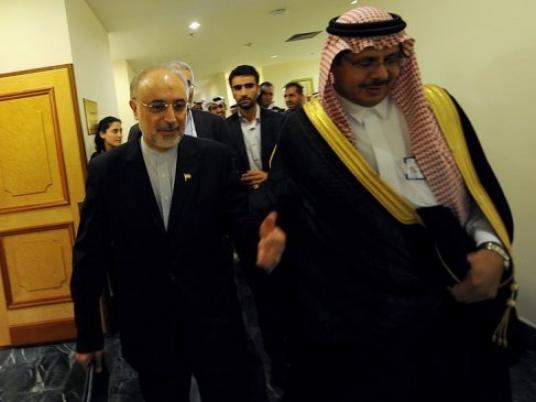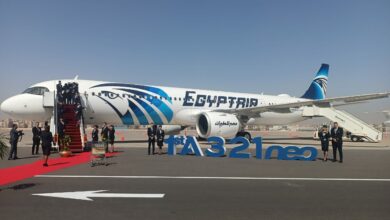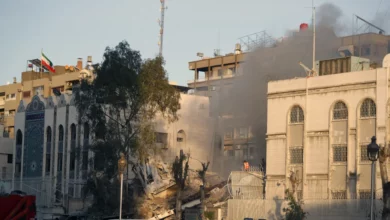
Muslim leaders were on Tuesday to mull proposals to suspend war-hit Syria from the 57-member Organization of Islamic Cooperation (OIC), an action which is strongly opposed by Iran.
The OIC represents 1.5 billion Muslims worldwide and that it is holding a meeting Tuesday night in Mecca, the holiest Islamic city, is of particular significance — the 26th of the holy month of Ramadan is the night when the Koran was revealed to the Prophet Mohammed, according to Muslim tradition.
Foreign ministers who held a preparatory meeting on Monday recommended the suspension of Syria's membership, the OIC chief Ekmeleddin Ihsanoglu said.
Iranian President Mahmoud Ahmadinejad, whose country has openly criticized the push to suspend Syria, is attending the extraordinary meeting.
It was proposed by Saudi King Abdullah, who is pushing to mobilize support for the Syrian rebels.
Tensions had been simmering for months between Sunni-dominated Saudi Arabia and Shia-dominated Iran, as both long-standing regional rivals had taken opposite stances on the uprising in Syria, which topped the summit's agenda.
The United States said that Rashad Hussain, its special envoy to the OIC, would take also part in the Mecca summit as an observer and hold meetings with other delegates on the sidelines.
His attendance "demonstrates the United States' commitment to working with our partners in the international community to support the aspirations of the Syrian people and bring additional pressure to bear on the Assad regime," a State Department statement said Monday.
Iran is the Syrian regime's biggest regional ally and has pledged its full support for embattled President Bashar al-Assad in his fight to remain in power, though it denies providing him with soldiers or arms.
Earlier this month, ISNA news agency quoted Iranian Foreign Minister Ali Akbar Salehi as saying that "retired" members of Iran's Revolutionary Guards and army are among 48 Iranians taken hostage by rebels in Syria.
Tehran, however, accuses Saudi Arabia, Qatar and Turkey of arming and financing the mainly Sunni Syrian rebels against Assad, who hails from the Alawite minority — an off-shoot of Shia Islam.
Meanwhile Saudi Arabia, which hosts the headquarters of the OIC based in the Red Sea city of Jeddah, has openly called for arming Syrian rebels.
Salehi on Monday assured reporters that "we are on track for increasing and improving the level of relations with Saudi Arabia."
However, the Iranian minister criticized the move to suspend Syria's membership of the OIC.
"We certainly do not agree with the suspension of any OIC member," Salehi said after the meeting.
"The suspension of its membership does not really resolve the issue and is not in line with the OIC charter," he said. "We have to look for other ways, means and mechanisms for resolving conflicts and crises."
Salehi called for "paving the way for a meeting between the opposition and the Syrian government so they can negotiate with the help of others to reach a Syrian-Syrian solution."
But apparently, most OIC members disagreed with Iran.
"The decision has been agreed upon based on consensus with an absolute majority" in favor of suspending Syria's membership, Ihsanoglu said.
It will be put to heads of state at their summit in Mecca, which will continue on Wednesday, for "final approval," he added.
Sources close to the meeting said that only Iran and Algeria were against the recommendation. Syria had no representatives at the meeting.
Meanwhile, Mohammed Ahmed Taieb, a top Saudi foreign ministry official told AFP that "some delegates" were calling for further steps against Damascus by "demanding that the current president step down and preparing for a post-Assad transition period."
Tunisian Foreign Minister Rafik Abdessalem hailed the suspension as "a strong message to the Syrian regime on the importance of listening to the will of the people and their demands for freedom, justice and dignity."
The 17-month conflict in Syria has killed more than 21,000 people, according to monitoring groups.
In addition to the Syrian crisis, the leaders were also to discuss the Arab-Israeli conflict, the violence against the Muslim Rohingya minority in Myanmar, as well as the unrest in Mali.




